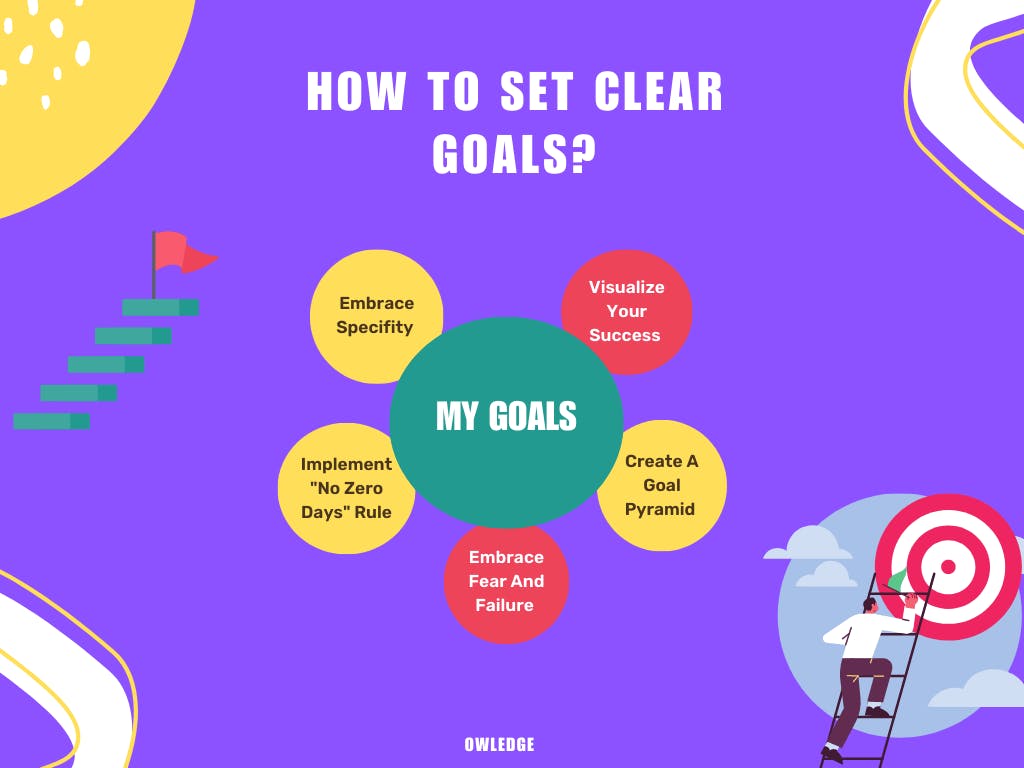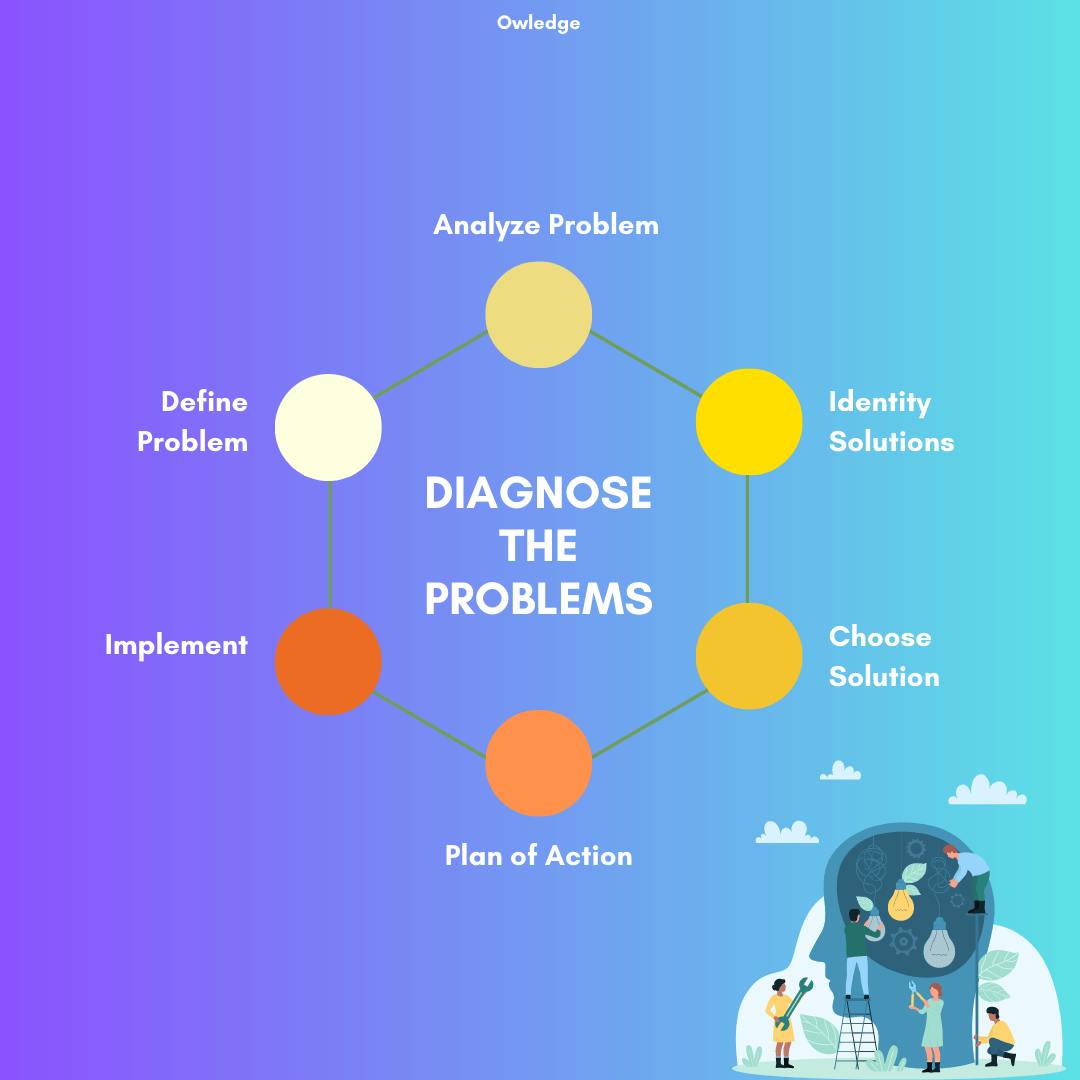
March 23, 2023
5 Proved Steps How To Achieve Your Goals Working Remotely
Do you want to make the best of this year? By working remotely your motivation is gone and you can't find a way to achieve your goals? Is there anything you want to re-evaluate?
Our team gathered 5 tips on how to achieve your goals when motivation is gone and you're working remotely!
We set short-term and long-term goals each year, but do we focus enough to achieve them? Setting goals is quite an easy task. The hard part is fulfilling them. So, if you want to achieve your goals this year, wait no longer!
1. Set clear goals 🎳
A crucial part of success is setting out clear goals. Think things through and write down what you want to do, achieve, and experience. One of the most important steps is to identify your goals. Once you know what you want, start the planning process.

We've gathered effective tips on how to set clear goals, let's check them out:
Embrace Specificity 🚘
When setting goals, be as specific as possible. Avoid vague statements and delve into the details. For instance, instead of setting a goal to "exercise more," specify a target like "run 3 miles three times a week" or "attend yoga classes on Mondays and Wednesdays." Specificity enhances focus and provides a clear roadmap to follow.
Visualize Your Success 🌁
Visualization is a powerful tool to solidify your goals. Close your eyes and imagine achieving your objective in vivid detail. Engage all your senses to feel the emotions of success. Visualization boosts motivation, instills belief in your capabilities, and reinforces your commitment to achieving the set goals.
Create a Goal Pyramid 🚵🏻♀️
Organize your goals into a pyramid structure. At the top, place your ultimate long-term goal. Beneath it, add the medium-term objectives necessary to achieve the primary goal.
Further down, outline short-term goals that support each medium-term objective. This pyramid approach breaks down lofty aspirations into manageable steps, making your path clearer and more attainable.
Embrace Fear and Failure 🧘🏻♀️
While it may seem counterintuitive, accepting fear and failure can be beneficial in goal-setting. Fear often accompanies ambitious goals, signaling that you are stepping out of your comfort zone. Embrace it as a sign of growth and push through.
Similarly, accept that failure is part of the journey. Learn from it, adjust your strategy, and move forward with renewed determination.
Implement the "No Zero Days" Rule 0️⃣ 🙅🏼♂️
The "No Zero Days" rule implies taking a small action towards your goal every single day, without exceptions. Even on days when you feel demotivated or overwhelmed, commit to completing at least one tiny task related to your goal. It could be reading a chapter of a relevant book, making a brief plan, or doing a quick exercise.
Consistency is key, and this approach ensures steady progress over time.
Don’t be afraid to be audacious! Often in life, we’re limited by our mindset. Subconsciously we think that we’ll fail. We stay in our comfort zone most of the time because we feel safe. So, if you want to achieve your goals, get out of your comfort zone, and don’t be afraid to dream big!
2. Figure out the problems 🧗♀️
Be completely honest with yourself. Only then you’ll figure out the problems that may occur along the way. You should know your weaknesses and set your ego aside. Work hard on improving your weaknesses. Dig deep!
- What drives you to accomplish that goal?
- Will its accomplishment increase the quality of your life?
- Why is the fulfillment of that goal so important to you?
Answer honestly and remember the answers. Use them later on when you feel a lack of motivation. Your honest answers will help you identify the problems. Once you’ve figured out the setbacks, the rest is easy. Create a precise plan to overcome them and move forward.
Don’t multitask! Concentrate on one main task daily. Find a time when you’re most productive and make the most of it.
If you feel anxiety or depression, check our How to overcome anxiety & depression while working from home article.
3. Diagnose the root of the problems 🎭
Before jumping to the solution, diagnose the root of the problem. Focus on the diagnosis and design rather than making impulsive decisions. The problem may not be visible at first, so it’s crucial to be thorough and persistent. Get to the bottom of each goal. Ask “WHY“ as often as you can.
- Why have you failed?
- Why aren’t you dedicated enough?
- Why do you lack perseverance?
- Why…?
Be focused and try not to lose your motivation. Step away and try to diagnose the core of the problem from a different angle. Stop worrying about what other people think about you and expect of you.

Set the goals for you and you alone. Once you put yourself first, it’ll be easy to determine the core of the problem. Then and only then you’ll be able to start working on the solution.
No matter how difficult or unachievable your goals may seem, once you’ve diagnosed the root of the problem, you’ll be one step closer to their achievement.
4. Design solutions 🧘♂️
Re-evaluate the steps that lead you to where you are now. Look back at the decisions that brought you to this point. Visualize what you have to do next to reach your goals. Try to design system-based solutions.
According to the author of “Principles” by Ray Dalio, Designing precedes doing! The design will give you your to-do list”.
These are 3 main ideas of the book:
- Set a realistic deadline and bear in mind that change takes time.
- Find the time on your calendar for each specific goal. That seemingly simple action increases your chances of success.
- If the goal is too complex, break it down into simple steps. For example, if you want to lose weight and exercise, start by finding and subscribing to an exercise program. Block a space in your calendar and set the time. If you feel a lack of motivation, at some point, concentrate on the result.
If you're struggling with procrastination, check our Why procrastination is bad? 7 effective steps to beat it today article.
5. Execute 🎯
The execution of goals is the final step. To reach this step, first and foremost, you need self-discipline. Do not fall back on the first obstacle. Be result-oriented and push yourself to achieve the goals you set. But bear in mind, you don’t have to suffer to achieve your goals.

Executing tasks efficiently and quickly is a valuable skill that can boost productivity and free up time for other pursuits. Here are 3 advice on how to do it fast and get results:
Practice Active Procrastination 🚴♀️
Procrastination is often seen as a negative habit, but "active procrastination" can be a powerful technique. When faced with a complex or time-consuming task, rather than avoiding it altogether, postpone it to work on another important task.
This way, you remain productive while giving your subconscious mind time to process the challenging task. Surprisingly, when you return to the initial task later, you may find that you can tackle it more quickly and effectively.
Incorporate the Two-Minute Rule 2️⃣
The Two-Minute Rule, popularized by productivity expert David Allen, is simple yet effective. If a task takes less than two minutes to complete, do it immediately.
Whether it's replying to a short email, tidying up your workspace, or making a quick phone call, addressing these small tasks right away prevents them from piling up. This approach helps maintain momentum and prevents time wastage.
Use Task Chunking 🗂
Group similar tasks together and execute them as a batch. For example, if you need to respond to multiple emails, dedicate a specific time slot to handle all of them at once. Task chunking reduces the cognitive load of constantly switching between different activities, leading to faster task completion.
Remember, efficiency and speed come with practice and discipline. By experimenting with these uncommon tips and finding what works best for you, you can significantly improve your task execution skills and make the most of your time.
Conclusion 📌
Let’s resume! To achieve your goals this year, set clear goals, figure out the problems that might occur along the way, diagnose the root of the problem, design solutions, and last but not least, EXECUTE!
### Useful Links
What is Owledge? - Learn more about Owledge in 1 short article.
Join Our Discord Community - we post 100+ freelancing jobs, news and trends daily!
Try Owledge For Free - to explore our app for freelancers, agencies, solopreneurs and small businesses!
You can also follow us on Facebook, Twitter, Pinterest & LinkedIn.